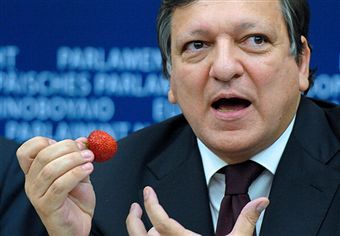 Britons are becoming increasingly eurosceptic, according to YouGov. I have previously predicted that could leave the union; but there is another option. Following the eventual
resolution of the euro crisis, the EU may evolve into a much more asymmetric arrangement, with a small group of European states integrating in some areas, while other states remain outside.
Britons are becoming increasingly eurosceptic, according to YouGov. I have previously predicted that could leave the union; but there is another option. Following the eventual
resolution of the euro crisis, the EU may evolve into a much more asymmetric arrangement, with a small group of European states integrating in some areas, while other states remain outside.
On the surface, this does not look like anything new. The EU already has many different levels of integration. The Schengen agreement and the euro are examples of this and the Lisbon Treaty holds out the idea of more such multi-speed arrangements.
However, after the euro crisis, these will be different from those that have gone before. First, there will be no “core” group, no set of EU countries that integrate everything and have some kind of elevated status. Second, the Eurogroup — often seen as such a group — will be much smaller: a monetary and fiscal union cannot work with so many different systems of taxation, social services etc. Finally, bilateral initiatives such as the Anglo-French defence agreement will flourish across Europe, and will probably include non-EU states like Turkey and Norway. The end point will be a Venn Diagram of European cooperation.
What legal basis such a set-up will take, what role for the EU institutions and how to maintain key aspects of the Internal Market, will have to be pondered by constitutional anoraks. But this model of European co-operation is likely to be more democratic, more sustainable and more acceptable in Britain.






Comments